
This article was produced by Capital & Main. It is published here with permission.
The black-and-white photo-booth portrait of Gloria Arellanes from the 1960s, with a beret slightly askew atop her head, has become emblematic of the Brown Berets, the civil rights group that fought for better public education and community health care and against police brutality and the Vietnam War. Today, the picture can be found in college textbooks highlighting the importance of women community organizers.
The Brown Berets helped create East Los Angeles’ first free health clinic in 1969. Arellanes was the clinic’s first director. The clinic provided basic services like medical exams, prenatal care and prescriptions for medications and eventually became AltaMed, one of the largest nonprofit, community health providers for low-income Latinos in Southern California.
Arellanes died on October 11, 2024, in her home. She was 78. By then she was known not so much for her revolutionary past, but as “Grandma Gloria” — a revered elder among Chicanas and the Tongva community across Los Angeles. Her activism has been documented in the archives of California State University, Los Angeles; the Library of Congress; a University of California, Los Angeles oral history project; books and essays; and even a corrido by L.A. punk pioneer Alice Bag. To her son, Chuautemoc, nicknamed Mo, she was mom — a single mother raising her two children in the El Monte home where she was born.
The clinics present today have not cured health disparities. Nationwide, Latinos are twice as likely as whites to be uninsured. In California as of 2021, one in 10 Latinos lack health insurance, and 15% of Latinos delayed doctor’s visits, one reason for which was they could not pay.
Amidst the persistent lack of access to doctors and health insurance, a new generation of Chicana activists is building upon the foundation laid by Arellanes to improve Latina health through healthier foods and exercise. They don’t wear berets, favoring huipiles, the indigenous blouse from Mexico and Central America. Like Arellanes, they seek to elevate health and wellbeing in their communities but are doing so outside the doctor’s office.

Arellanes was director of the El Barrio Free Clinic. Free clinics elsewhere — La Clínica in Oakland and the Chicano Free Clinic in San Diego’s Barrio Logan — opened as well. The clinics offered free medical services, in Spanish, to residents who had no health insurance.
David Hayes-Bautista, a researcher at UCLA and La Clínica’s co-founder, said the clinics were a radical concept for the time. “Our goal was to use community medical care as a form of community organizing,” Hayes-Bautista said, repeating the goal of empowering, in order, patients, families and community. “The community needs to be involved in creating its own health.”
While engaged in community organizing, Arellanes had developed type-2 diabetes after her first pregnancy in 1973. She managed her diabetes for most of her life without medical intervention, Mo said. She kept away from sugar, candy, sodas and pastries and used insulin in her final decade. For five years, she lifted weights regularly at a small gym in a strip mall near her home. But she hurt her knee and quit.
In her last three years, Arellanes stopped walking. She had a painful ulcer on her foot. She became more cautious after breaking a hip and fracturing an elbow in separate falls. In December 2023, doctors amputated her right leg.

Just as the 1960s generation used clinics to center community organizing, activists today are using culturally specific meals to build awareness and solidarity while improving health.
Marlene Aguilar’s decision to create plant-based adaptations of traditional meals — mushroom pozole, blue corn tamales — was inspired by a desire to help address chronic illness in Los Angeles.
When Aguilar was 17, her father told her a story about a diabetic man whose foot, doctors warned, would need to be amputated. The man fled to the rancho in Mexico. There, he lived on a rural diet — fresh beans, tortillas and nopales, or cactus. He walked regularly. He got better. He kept his foot.

“All he needed to do was eat our ancestral diet and walk more,” Aguilar marveled. “And he preserved his foot, which implies his independence.”
Aguilar met Arellanes a year or two before the pandemic, at native celebrations, traditional food workshops and activist gatherings where Arellanes was often a speaker.
Aguilar, 38 now, prefers the term “community-based cook” to “chef.” Her business is named Irekuarhikua — the Purépecha term for “forma de vida,” or way of life. Her food workshops emphasize the importance of nixtamalization, or the ancient process of softening corn to increase the bioavailability of nutrients such as protein, amino acids, calcium and vitamin B3. Aguilar often meets Latinas who don’t know about nixtamalization.

Aguilar has been concerned with food access since she was a student at the University of California, Berkeley, in 2004. There, she learned about the Latino health paradox: how immigrants with less money, less formal education and no health care are healthier than those whose families have been in this country for generations.
“That shook me; that means I’ll have poor health and my kids will be worse,” Aguilar recalled. “And if I don’t apply myself now, there’ll be consequences.”
Diabetes is one exception to the paradox, according to Hayes-Bautista. Latinos are 1.5 times more likely than whites to die from diabetes, according to the U.S. Department of Health and Human Services’ Office of Minority Health and Native adults are 1.5 times more likely than whites to be diagnosed with the disease.

A 12-minute walk from the original site of El Barrio Free clinic and a short trip down Whittier Boulevard, a street world famous for cruising and lowriders, sits Malinalli, a plant-based cafe started by Jenny Silva and Erube Peña.
Thirteen years ago, a doctor warned Silva she was pre-diabetic. She began walking in the Angeles National Forest. She also experimented with nutrient dense foods like amaranth, spirulina, maca, chia, hemp and cacao. Silva mixed those ingredients with fruit juice and shared her drink with her children — disguising it in a Jamba Juice cup. They said they liked the new flavor. Silva knew she was on to something.
The menu at Malinalli, a Nahuatl term for people who work with herbal medicine, is simple. It offers three smoothies, aguas frescas from seasonal fruits like nochtli (prickly pear), guayabas and melon, sweetened with agave, as well as vegan bowls, sandwiches and tacos. In more affluent parts of Los Angeles — Pasadena, Highland Park or West L.A. — they could charge three times as much as they do. But the mission is community health rather than profit. Silva said customers have improved iron deficiencies and fertility and managed diabetes and cholesterol.

A few minutes’ walk away from Malinalli, Silva’s father, Enrique, once sold fruits and vegetables from the back of a converted truck. With leftover fruit, he taught Silva the benefits of juicing when she was a child.
Silva didn’t know Arellanes. But she knew the portrait.
Arellanes developed an ulcer on her remaining foot earlier this year. The infected ulcer led to a blood infection. Arellanes needed intensive care. Doctors recommended another amputation, which would have left her totally immobile. That’s when she began talking about end-of-life options. Mo said he understood his mother’s choice.
“From then on, it was just about making her laugh,” recalled her son.
Part of the pain of losing an elder is the void created in a community: “Who will replace that knowledge and leadership?” Aguilar asked.

But the answer is clear as Aguilar and Silva, in the footsteps of women like Arellanes, work to improve the health of the community. Fifty-five years after El Barrio Free Clinic opened, Latinas and Latinos still need access to health care and, in particular, to lower the incidence of diabetes. Community health is healthy food and exercise as well as clinics and doctor’s visits. The ongoing struggle for community health is a reminder the Chicano rights movement isn’t over.
Hayes-Bautista, who met Arellanes in 1971 while he was working at La Clínica in Oakland, said he shares what he learned from his own patients about neighborhood health and food.
“I tell people, ‘Whatever your grandma told you about food, she was probably right.’”
For Silva, it was the lessons from her father, and for Aguilar it was the lessons from her parents. For the pueblo Chicano, there is a lesson in the loss of Grandma Gloria.

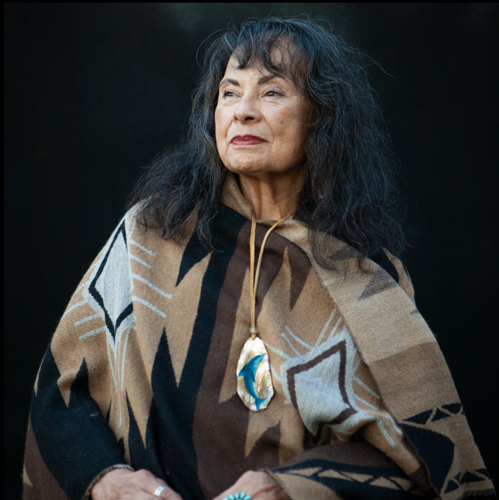
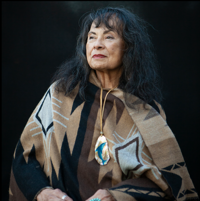



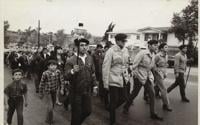
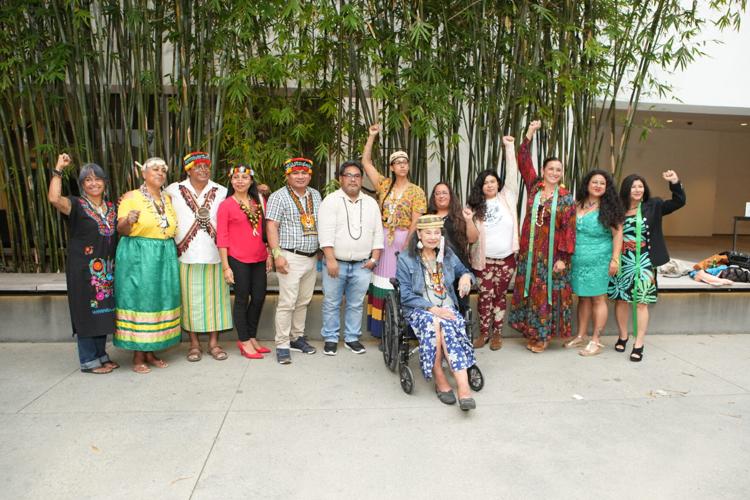
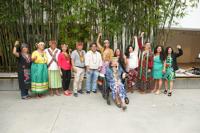
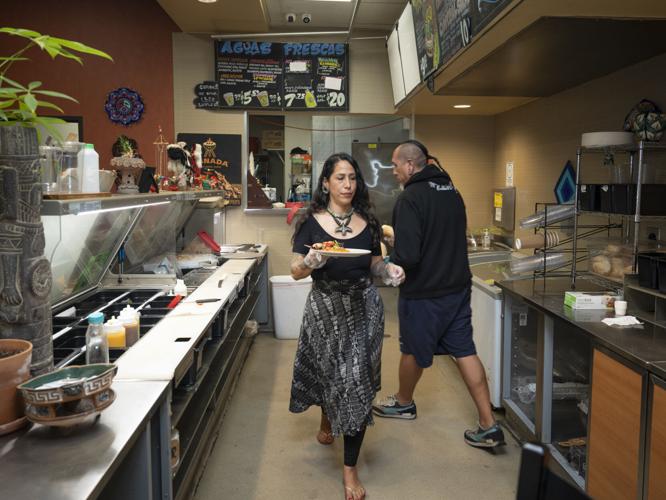
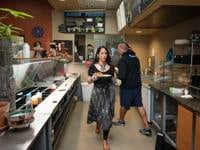
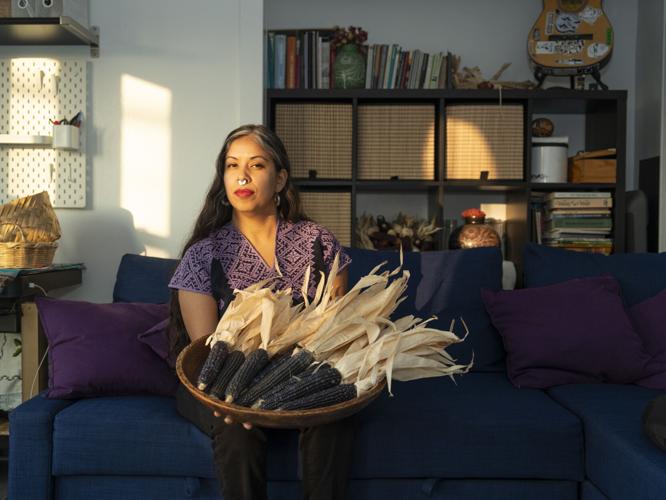
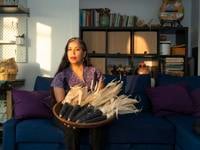
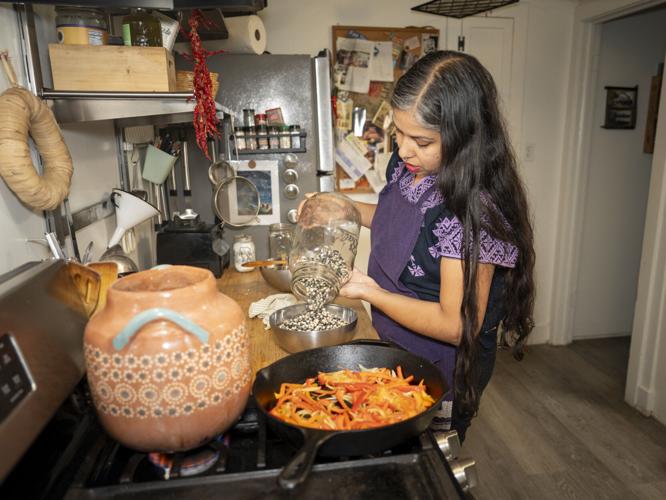
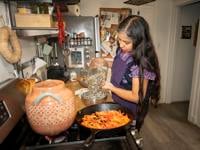
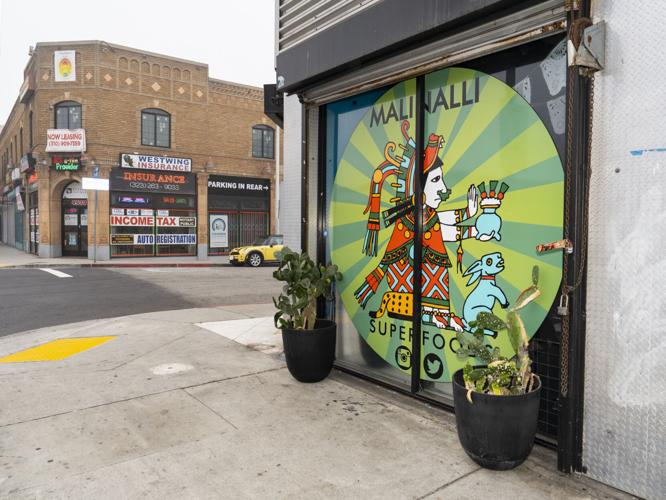
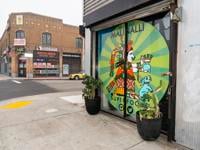
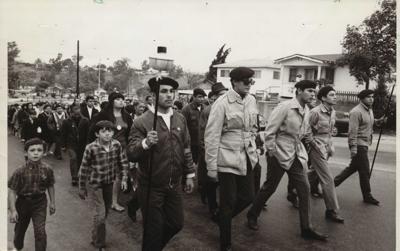



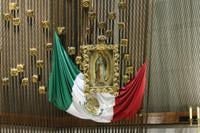



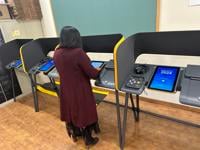
(0) comments
Welcome to the discussion.
Log In
Keep it Clean. Please avoid obscene, vulgar, lewd, racist or sexually-oriented language.
PLEASE TURN OFF YOUR CAPS LOCK.
Don't Threaten. Threats of harming another person will not be tolerated.
Be Truthful. Don't knowingly lie about anyone or anything.
Be Nice. No racism, sexism or any sort of -ism that is degrading to another person.
Be Proactive. Use the 'Report' link on each comment to let us know of abusive posts.
Share with Us. We'd love to hear eyewitness accounts, the history behind an article.